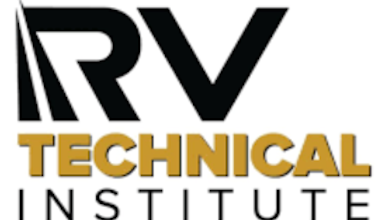Earlier this year, the RV Technical Institute conducted a study of dealer principals, service managers, and technicians across the RV industry to identify challenges, opportunities, and needs in RV repair service. With an ever-increasing customer base, especially as RVs have become the go-to option in American travel this summer, quality of service is paramount to delivering positive customer experiences.
The following are the results of that survey, courtesy of the RV Industry Association.
Challenges and Opportunities
High on dealer principal’s minds were the overall current state of the economy and how to keep pace with recent sales figures and continuing to push the RV lifestyle to expand the market. While Baby Boomers may have been the industry’s bread and butter, now it is all about continuing to seek out a younger, more diverse consumer base. Over the past several months data has shown a growing percentage of RV buyers are coming from a younger, more diverse demographic and dealers are recognizing the need to understand that the new consumer is more informed than ever and has a different set of needs and expectations when it comes to brand, quality and purchase experience.
As with most growing industries, availability of a highly skilled workforce represents a critical challenge, which includes employee churn. In many cases, once staff gains significant experience, they are susceptible to moving on to other career opportunities. In addition, service managers are concerned with how to find those who may be interested in service technician work, especially compared to other skill careers. Once found, it can be heavy competition for a minimal pool of potential workers within their saturated geographic footprint.
What are the needs and motivations for training?
While the current pool of technician workers feels well qualified for their current jobs, based on survey data they appear ready for comprehensive training and a certification program that provides a career path. This is led by a willingness and a desire to increase future earnings and impact the long-term success of their career. Training is the process; certification is the desired outcome.
Dealer principals were likely to say that investment in enhanced training, whether it is for existing or incoming workers, has a great deal of impact on the organization’s bottom line and would help them to attract and retain qualified workers. However, having the time for training can be a challenge for both the individual and the organization. They recognize that training is a long-term investment and may not pay dividends immediately.
America’s workforce is becoming more sophisticated in terms of basic skills and access to knowledge. With digital technology being essential in our daily lives, most workers have a high level of comfort with the use of computers and other digital formats. This is no different in the RV service technician field where a majority of those surveyed felt comfortable learning in a digital environment. This information was a catalyst for the RV Technical Institute developing a self-paced, immersive, online training program for their Level 1 course.
It is clear from the survey that that ongoing service technician training and development is a key component to the long-term success of the RV industry. With the launch of the RV Technical Institute, which is on pace to train 1,000 students in its inaugural year, the move toward a formalized and structured approach to training and certification is well underway.
